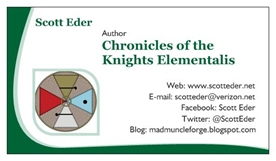Make friends with your fellow writers.
Who, the people I’m competing against for publication contracts, agents’ attention, spots in magazines and anthologies?
Yes, them.
Why? I need publishers, editors, reviewers and readers. But I’m the writer. Why do I need other writers?
Very few people are good at everything, and, particularly when you’re starting out, you can save a lot of time, money, and or mental strain by getting some advice from someone who’s done something before. If you’re in a tough patch, a fellow writer may be more than a sympathetic ear: they may actually know a coping strategy that worked for them. And who will know your field better than a fellow writer?
I remember expressing frustration that I couldn’t take part in a book launch event because, at the time, my only publications had been in anthologies and the event was for novelists only. If I’d been on my own, my aspirations might have ended there. Instead, I vented to a writer friend of mine.
She said she knew two other writers in the same position as me, and maybe we should get together and do our own launch. We could call it an “Author Launch” since the books we were in had multiple contributors. I was in.
Where could we have it? At the time, I was working for a Business Improvement organization. One of our member businesses provided us a meeting space, free of charge, on the proviso that the invitees purchase a certain dollar amount worth of food and drink.
Another person knew a guy who specialized in film and photography. Another person knew a bigger-name local author who agreed to be our master of ceremonies. Another person designed and printed some posters, which we all helped to distribute. The authors were invited to be on a radio program. The local sci-fi community came on board.
We packed the room. We sold books. We had fun, and got our names out there.
I could never have pulled off that event all by myself.
Fellow writers can introduce you to key people: agents, publishers, editors. They can let you know about new markets, calls for submissions, convention events. If you want to know who designed their web site, their book cover, their business cards: you can ask them.
Going to a convention is a lot more affordable when there’s four people splitting the cost of a hotel room and gas. This blog is created by a group of writers who met via Superstars Writing Seminars and decided to start a blog together. I certainly couldn’t maintain the demands of five blog posts a week all on my own!
One big caveat. The idea is that writers help out other writers, but nobody wants to be friends with someone who is just using them for contacts. If you take and take and never give back, people will notice. If you only talk to someone when you want something, people will notice.
In order to benefit from the Six Degrees, you have to be willing to give back.
In every group you will find people you click with and people you don’t, and that’s okay. If you spend time with people who have a common interest (writing), you will naturally gravitate towards some of them. It’s likely you and they will have other interests and commonalities–the foundation of friendship. Some people may not be interested in getting to know you, or may be too busy. That’s okay too. Let them go, and focus on the people who return your interest.
If you say you are going to do something for someone, do it unless an extreme circumstance arises. Being hospitalized is an extreme circumstance. Putting it off until you feel like it is not. Most people will be understanding of an unexpected emergency, but if over time you develop a reputation for not making good on your word, it will be hard to shake.
Every writer has to strike a balancing act between writing (what we’re all here to do) and non-writing activities in support of our writing. Some of those activities may include blogging, conventions, writers’ groups, and hanging out with our writing friends. It’s your responsibility to decide how much socialization is important (because career-related discussion, venting, support and advice is very important) and how much is procrastination posing as time well spent. You can’t volunteer for everything if you hope to get your writing done, so choose carefully what you’re going to do: pick things that will support your career, allow you to give back to your fellow writers, and still leave you time for the writing itself.




